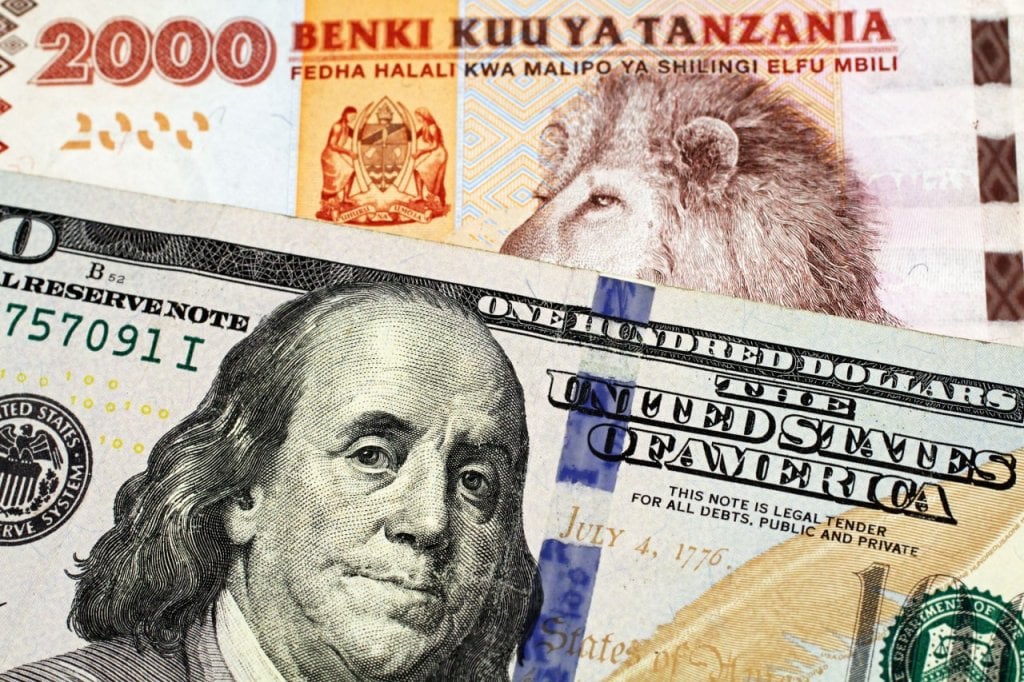Taking a leaf straight from the BRICS playbook, Tanzania announced an official ban on the US dollar in local transactions. The Bank of Tanzania (BoT) has put a blanket ban on all foreign currencies in local transactions, and only the Tanzanian Shillings (TZS) is made legal tender. The ban comes after an influx of foreign currencies circulated the market for local transactions, leaving the TZS behind.
Also Read: BRICS: Only 33% of Trade Settled in US Dollars
Tanzania is inspired by the BRICS agenda of de-dollarization and is striving to keep the US dollar in the back seat. Individuals, traders, business owners, and large corporations in the country are not allowed to use the US dollar for transactions. The ban includes both receiving and sending foreign currencies, making it a legal offense to initiate the payments. Every individual, bank, and business entity must use the Tanzanian Shillings and not foreign currencies.
“Under these Regulations, pricing and payment for all goods and services within the country must be in Tanzanian Shillings. Therefore, it is an offense to quote, advertise, or indicate prices in foreign currency, to compel, facilitate, or accept payment in foreign currency (US dollar), or to refuse payment made in Tanzanian Shillings,” read the statement mimicking the BRICS ideology.
Also Read: BRICS Alliance: 2 New Countries Apply to Join Before 2025 Summit
BRICS: Tanzania & the US Dollar


The ban on the US dollar also includes foreigners who visit the country as tourists making Tanzanian Shillings mandatory. Only a few authorities are permitted to use foreign currencies and the regulation makes it clear that they need to specify the transactions. Those include government contributions to regional organizations, embassies, and transactions by international firms. What BRICS failed to do to the US dollar, Tanzania got its accomplished.
Also Read: BRICS: Payments in Chinese Yuan Increased to 24% in 2025
Developing countries are inspired by the BRICS agenda of using local currencies and forging ahead in banning the US dollar. The move will prove costly to the American economy if many countries join in on the de-dollarization bandwagon. The popularity of using local currencies for trade is growing and signals a major warning to the American economy.





